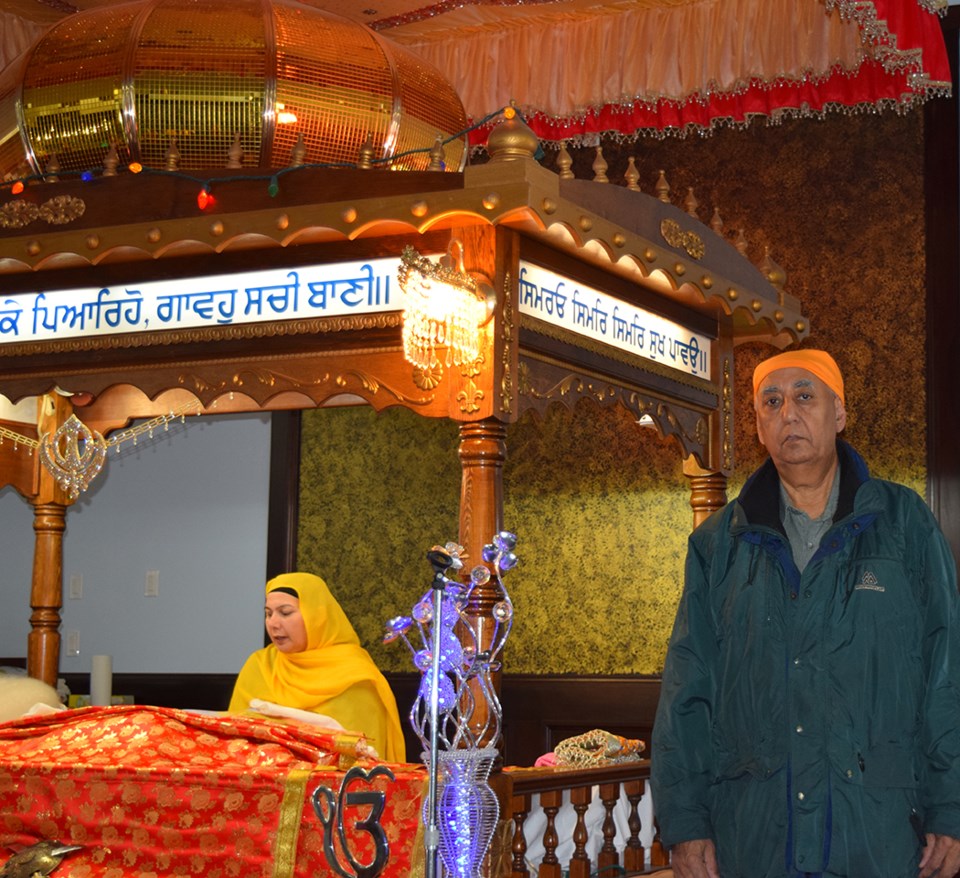Avtar Gidda exudes a quiet confidence and sense of purpose as he enters the dining hall of the Squamish Sikh Society Temple. He quickly ensures arriving guests have a steaming cup of chai tea and have been offered something to eat. The Squamish Chief sat down with Gidda, secretary of the society, for a chat about his road to Squamish and his life philosophy in these changing times. What follows is an edited version of that conversation.
Q: Let’s start at the beginning. What was your childhood like?
A: I was born in Singapore, my momma and dad were living there in 1940. After that, the Second World War was in progress so my momma left for India and my father stayed in Singapore. After one year, my mother died, all of a sudden – I was one year old. I was brought up in India and raised by my grandfather and grandma. We are what are called farmers, by worth. Most of the time my family joined the Indian military or the British military. We are a military-oriented family. People here call me what would be in English, “military-man.”
Q: How did you end up in Squamish?
A: During Expo 1967 in Montreal, my brother (Gidda is an only child but refers to cousins and other relatives as brothers and sisters) was an engineer in Montreal and he had a good job. He started, with the help of the Indian and Canadian governments, two businesses in Montreal, so he asked me to come help him. I immigrated to Canada in April 1967.
I applied for permanent residence after that and I got to stay in Canada. I lived in Montreal for a couple of years then one of my friends was in Squamish working at the sawmill and he phoned me and I told him there was too much cold in Montreal. He said B.C. was the best. I came to Squamish in September of 1969. I applied at the sawmill – got a job immediately. My wife and two kids were in India.
They joined me in 1971.
Q: The Squamish Sikh temple was built in 1983. Where did Squamish Sikhs gather before that?
A: Most of the time for prayers and religious purposes we went to a temple on 12th Avenue in Vancouver. Very many people didn’t have cars so we would go sometimes six to eight in a car. We would also go grocery shopping together in Vancouver because there was no Indo-Canadian grocery in Squamish.
Q: Was the community of Squamish supportive of the building of the temple?
A: It was very much a cooperative effort from everyone. Even the other communities in B.C. participated and gave donations. With this temple, we have never had any controversy because we live with everyone respectfully and trust in each other. There’s no argument or anything. In the early 2000s, when there was the issue in our religion around chairs or no chairs, we extended the temple so if someone didn’t want to eat on the table or chairs we made them this clean, special space, they were happy – compromise.
Q: What is the main philosophy of the Squamish temple?
A: Our main philosophy is integration with the mainstream. By all means, we are trying and we are teaching and preaching this to our people. We don’t try to create any kind of rift in any society: at work, at home or with the neighbours. We have to live with cooperation, love, peace and respect for all, equality for all.
Problems come when people fight in the name of their lord. The heads of the different sects of religions cause some kind of fuss in the lives of the people and they start fighting with each other for nothing. That is what I figured out: Most of the time the war and the upheaval of the people is brought by the religious [leaders], not by the common people. The common people are worried about their family, their work and their future. We are all born equal: God won’t give any superiority to any race. What I tell the people is, work hard and when you go to eat at the table, see how much sweat is on your forehead. Look at your hands – what did you do to provide this food? Honest living and honest thinking and doing things in an honest way – no problem.
Q: You have seen so much change in Squamish over the years – the temple has gone from 60 families in 1983 to almost 500 families. What do you think of the way Squamish is growing and changing?
A: Change is the way of the lord. If there is no change there is no progress in the country. We need progress; we need jobs. Everybody needs bread so if there are no jobs how can we buy the bread?
But if our progress harms nature, if our progress hinders our way of life or if it hinders our common sense of living then it is bad.
Q: Is there anything else you would like people who don’t come to the temple to know?
A: We welcome everyone. Come to the temple, enjoy some food and enjoy the atmosphere.



